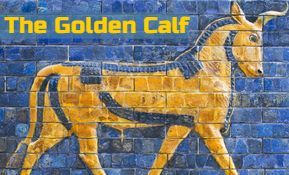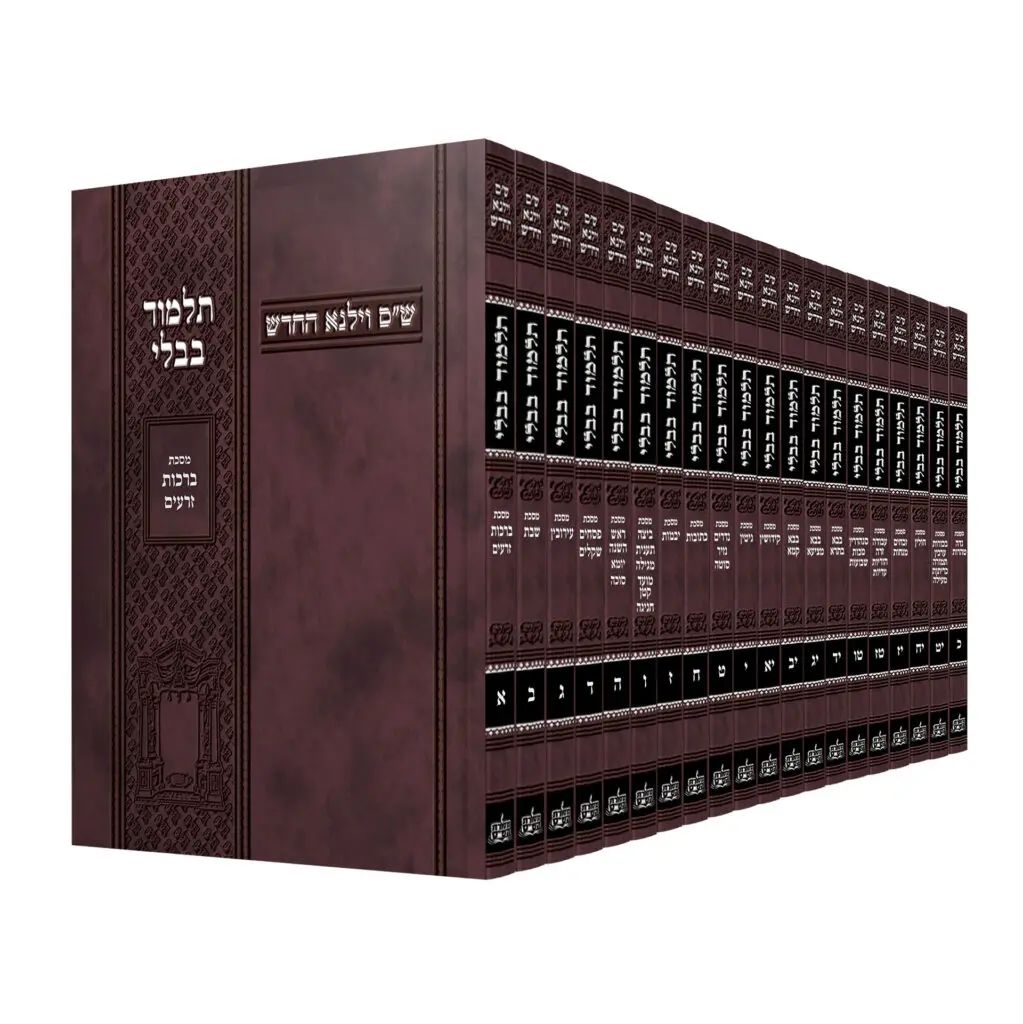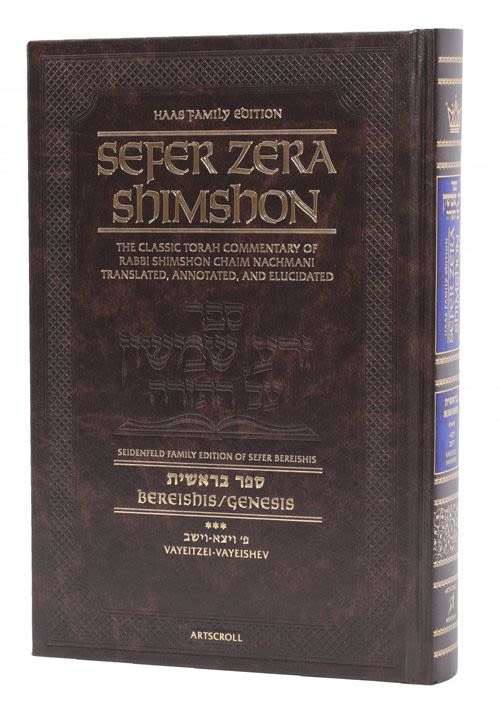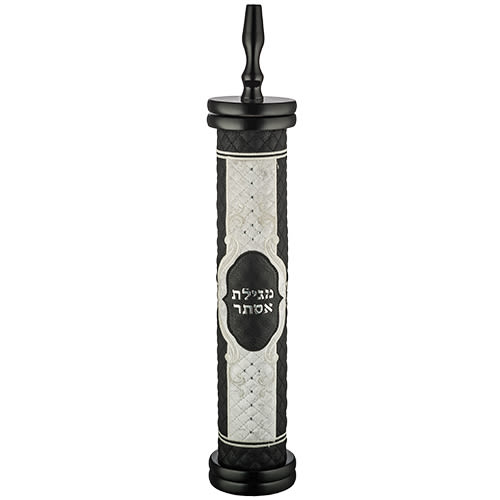
Tetzaveh: Seek the Truth
When I entered a baal teshuvah Yeshiva twenty-eight years ago my clarion cry was “Clarity or Death!”

Wise Hearted
When I entered a baal teshuvah Yeshiva twenty-eight years ago the clarion cry was “Clarity or Death!” Although times have changed, the importance of being a truth seeker is not diminished. What clarity can we gain from this week’s parshah?
"And you shall speak to all the wise hearted, whom I have filled with the spirit of wisdom" (Shemot 28:3).
The expression “wise hearted,” which is used throughout the description of the Tabernacle's construction, is mentioned here for the first time. What is a wise heart, and who does the Torah praise as being wise hearted?
Rabbi Chaim Shmuelevitz wrote that we can understand what is meant by a "wise heart" from God's instructions for constructing the Tabernacle: “And, behold, with him [Betzalel] I have placed Oholiab the son of Ahisamach, of the tribe of Dan, and all the wise hearted into whose hearts I have instilled wisdom, and they shall make everything I have commanded you” (Shemot 31:6). This teaches us that God will instill us with wisdom, but we must be initiate the preparation. How do we initiate the preparation? Through having a wise heart.
The Wisest of All Men
How do we make ourselves “wise hearted” so we can receive Hashem's wisdom? Shlomo HaMelech (King Solomon), the wisest man of all time, showed us the way. God granted him enormous wisdom, as it states:
“And God gave Shlomo wisdom and understanding exceedingly much, and largeness of heart, as the sand that (is) on the seashore” (Melachim I, 5:9).
How did Shlomo earn this gift?
“In Gibeon Hashem appeared to Shlomo… and God said, ‘Ask what I shall give you.’ And Shlomo said… ‘Give Your servant an understanding heart to judge Your people, that I may discern between good and bad…’ And God said to him, ‘Because you have asked this thing, and have not asked for yourself long life; neither have you asked riches for yourself… Behold, I have done according to your word; behold, I have given you a wise and understanding heart…’” (Melachim I, 3:5-12).
Shlomo was granted wisdom because he sought it with all his heart and soul. His desire for wisdom was so strong that he was willing to give up wealth and a long life to attain it. He understood that life has no value without wisdom.
The Rambam expresses this value in the law concerning the punishment of rotzeach b’shogeg, an unintentional murderer: “A Torah student who killed unintentionally is exiled to a city of refuge, and his Rav (mentor) must go into exile with him, as it is written: “And he shall live.” The Sages derived from this verse that the court must provide him with his needs. Those who have acquired wisdom and seek it have no life, and are considered as dead, without the ability to learn Torah” (Hilchot Rotzeach, 7:1). For a person who seeks wisdom, a life without wisdom is no life!
Shlomo understood that. Therefore he asked only for wisdom, and that is why he received it. This explains what is meant by “wise hearted.” If we desire for wisdom, we'll become wise! A person who truly seeks wisdom is called “wise hearted.”
A Man of Spirit
The quintessential seeker of wisdom was Yehoshua Bin Nun (Joshua), who was chosen to be the leader of the Children of Israel after Moshe (Moses). How did he earn the right?
When Moshe asked for a successor, “God said to Moshe, “Take to yourself Yehoshua son of Nun, a man in whom there is spirit” (Bamidbar 27:18). Seforno explains: “He was prepared to receive the presence of the Living King, as in the verse: ‘And all the wise hearted into whose hearts I have instilled wisdom.’”
The Seforno makes the connection explicitly: Yehoshua was ‘wise hearted’ and therefore he was ‘prepared to receive the presence of the Living King,’ i.e. to become the next leader of the Children of Israel.
How was Yehoshua wise hearted? Yehoshua, the disciple, desired wisdom. He was determined to learn every drop of Torah from his teacher, Moshe.
“So Moshe and Yehoshua, his servant, arose, and Moshe ascended to the mount of God” (Shemot 24:13).
Rashi explains: “`So Moshe and Yehoshua, his servant, arose’– I do not know what business Yehoshua had here, but I would say that the disciple [Yehoshua] escorted his mentor [Moshe] until the place of the limits of the boundaries of the mountain, for he was not permitted to go past that point. From there Moshe alone ascended to the mountain of God. Yehoshua pitched his tent and waited there for forty days. So we find that when Moshe descended, 'Yehoshua heard the voice of the people as they shouted' (Shemot 32:17). We learn from there that Yehoshua was not with them.”
Why did Yehoshua wait forty days at the foot of Mount Sinai? Rabbi Shmuelevitz explains that Yehoshua was hoping to gain a few extra minutes of time with his Rebbe (mentor), to serve him and learn from him when he returned to the Israelites’ camp. Yehoshua was willing to spend forty days and nights away from his home, camping at the foot of the mountain, for the sake a few extra minutes with his teacher, with Moshe.
This is “a man in whom there is spirit!” His desire for wisdom knew no bounds, and that is the greatest quality a leader can have. This quality propelled Yehoshua ahead of thousands (!) of higher ranked leaders in the Children of Israel to become the leader of the next generation.
We see this from the description of Yehoshua when the Spies were described as “heads of the Children of Israel” (Bamidbar 13:3). Rabbi Yaakov ben Asher, the Baal HaTurim comments that they were all “leaders of fifties” as appointed by Yitro’s recommendation (Shemot 18:21). This means there were 6000 “leaders of hundreds” above them, and another 600 “leaders of thousands” on an even higher level.
Why, then, was Yehoshua chosen above the others who were far more knowledgeable than he was? Because in the quality of ‘wise hearted,’ he was the greatest. From here we can see that the truth seeker, who desires wisdom with all his heart, is on the highest level of all (Sichot Mussar, 5731).
Love of the Torah
This point can be illustrated by an inspiring story that occurred in the Volozhin Yeshiva. Rabbi Eizel Charif, one of the greatest scholars of that generation, arrived at the Volozhin Yeshiva to seek a match for his daughter. He presented a complex and difficult question to the Yeshiva’s students, with the understanding that the student who could answer the question would be chosen as his son-in-law.
The students struggled to find an answer to his difficult question. Who wouldn’t want to be the son-in-law of one of the greatest rabbis of the generation?
One by one the genius proved them wrong. Not one student was successful in finding the correct answer.
After a few days Rabbi Eizel left the yeshiva empty-handed. As the carriage made its way out of the city limits, the driver suddenly heard a cry: “Hey, wait! Wait!”
Yosef Shluffer was running after the carriage. “Rebbe,” he cried, panting from his exertion, “The answer!”
“Did you find the answer?” Rabbi Eizel asked.
“No, Rebbe,” he said. “But I must know. What’s the correct answer?”
Rabbi Eizel Charif’s face lit up. “You’re the one I want as my future son-in-law! Your desire for Torah is so great that you were willing to forgo your honor and chase after my carriage. With such a sincere love of Torah, you are worthy of becoming marrying my daughter!"
Wisdom is Life
The Mishna in Pirkei Avos (4:1) states: “Who is wise? He who learns from every person.” Why would a brilliant, learned man, for instance, be willing to learn from a six-year-old child?
Rabbi Yitzchak Hutner explains that there are two types of commodities in the world: luxuries and necessities.
If I’m happy when I have it, but if I don’t have it, I’m not overly concerned – that is a luxury. A luxury would be a steak dinner instead of a plain meal.
If I’m miserable without it, but when I have it I don’t even notice – that’s a necessity, such as air or water.
Rabbi Hutner points out, however, that there some things that I’m miserable without, and yet overjoyed to possess.
The Torah scholars of all generations viewed understanding the Torah’s wisdom in that way. If they understood Torah, they rejoiced, but if they were unable to understand it, they were incapable of eating or drinking drink until they could find the answer.
Life, also, meets this definition. If I have life, I’m full of the joy of being alive! But without life…
The Torah scholars teach us that the same thing applies to wisdom. Wisdom is life! And that is why the Mishna teaches us to be prepared to learn from every man, because anyone who teaches us something is offering us the elixir of life! (as heard from Rabbi Noach Orlowek).
Let’s take the inspiration from this week’s parsha to become wise hearted and seek wisdom/life with all our strength.











Tell us what you think!
Thank you for your comment!
It will be published after approval by the Editor.